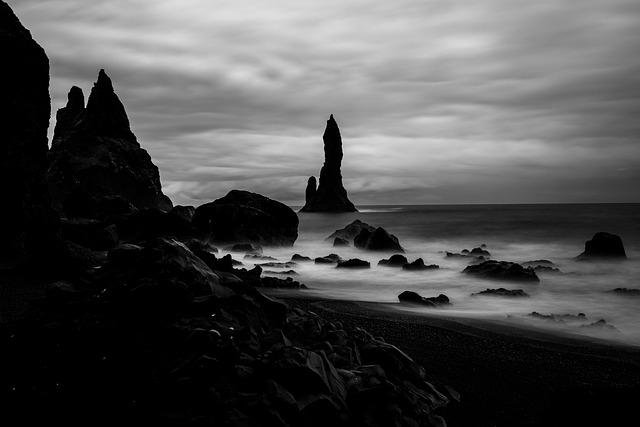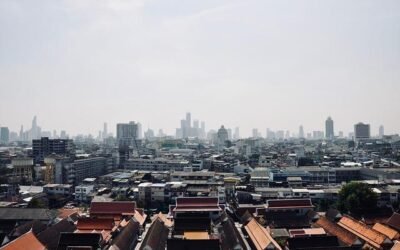Nestled on the southernmost tip of Iceland, Vik is a small but captivating village that promises far more than breathtaking landscapes. For curious travelers, educators, and students, Vik offers a rich tapestry of local history, unique educational opportunities, and fascinating academic facts that make it an ideal destination for education-focused travel. Whether you’re planning a study tour, school group journey, or are a solo traveler seeking historical insights, this guide provides top tips, interesting stories, and practical advice to help you make the most of your educational adventure in Vik.
Why Choose Vik, Iceland for Educational Travel?
Vik holds a special place in Icelandic history and academia. Not only is it a gateway to understanding the island’s geological wonders, but it also serves as a living classroom covering everything from Viking history to modern Icelandic culture. The town’s proximity to universities, historical landmarks, and remarkable schools sets the stage for an unforgettable and enriching educational experience.
- Rich Local History: Explore ancient sagas, settlements, and the cultural evolution of southern Iceland.
- Accessibility: Easily reachable from Reykjavik, making it convenient for academic excursions.
- Unique Academic Opportunities: Access to field studies, geology, volcanology, and environmental education.
Fascinating Facts about Schools and Educational Institutions Near Vik
while Vik is a small village with a population of around 300, its commitment to education is profound. Iceland, as a whole, boasts high literacy and innovative teaching methods, and Vik is no exception.
the Primary and Secondary Schools of Vik
- Kötlu School (Kötluskóli): Vik’s main educational institution caters to both primary and lower secondary students, ensuring local children receive a strong foundation in Icelandic language, science, and arts.
- Community-Centered Learning: Being a small community, the school encourages local engagement, cultural preservation, and emphasizes environmental education, leveraging Vik’s unique landscape as a natural classroom.
Opportunities for Visiting Educators and Students
- Short-term exchange programs and study visits are frequently organized with schools across Iceland, promoting cross-cultural and interdisciplinary learning.
- Many university research teams use Vik as a base for geological and environmental fieldwork due to its proximity to the Katla volcano and unique beaches.
vik’s Unique Place in University-Level Research and academic Field studies
Vik is not home to a university, but it plays a vital role in higher education through collaborative efforts with universities in Reykjavik and Akureyri.The region is a focal point for students specializing in geology, glaciology, volcanology, and renewable energy.
- Geological Wonders as Study Grounds: The nearby Reynisfjara Black Sand Beach, Mýrdalsjökull glacier, and Katla volcano are frequent locations for university-led field trips.
- International Researchers: The unique geology and volcanic activity attract academics from around the world, turning Vik into a seasonal hub for research and discovery.
Noteworthy University Fieldwork in Vik
- Researchers from the University of Iceland often conduct annual studies on glacial changes and volcanic activity.
- Ocean and climate science teams focus on Vik’s unpredictable weather and shoreline erosion as critical data points.
Local History and Cultural Insights: What Makes Vik Special?
Vik’s history stretches back to the earliest Icelandic settlers. Exploring its historical narrative offers invaluable perspectives on Iceland’s societal advancement, resilience, and innovation.
- Viking Heritage: Local legends and archaeological finds recount the legacy of early Norse settlers.
- The Church of Vik (Víkurkirkja): Dating back to 1934, this emblematic church is one of the village’s best-known landmarks—offering panoramic views and insights into religious and community life.
- Katla eruptions: The threat of the Katla volcano has shaped Vik’s layout, community preparedness, and even influenced national emergency protocols.
- Textiles and Trade: Vik was historically significant for sheep farming and the wool trade, crucial to Iceland’s economy and social structure.
Educational Travel Itineraries and Must-See Academic sites in vik
A well-planned educational travel itinerary in Vik weaves together academic excursions, historical sightseeing, and hands-on learning. Here are top recommendations:
1. Explore the Black Sand Beaches and Sea Stacks (Reynisfjara and Reynisdrangar)
- Study the formation of basalt columns and black sands, ideal for geology students.
- Discuss myths and folklore associated with the sea stacks, fostering a blend of science and culture studies.
2. Visit the Volcano Katla and Mýrdalsjökull glacier
- Arrange a guided field visit with a local expert or researcher for hands-on lessons in volcanology and glaciology.
- Learn about disaster preparedness and the impact of volcanic ash on agriculture and tourism.
3. Step inside the History of Vik at skaftfellingur Museum
- This small, local museum offers exhibits on seafaring, life in the region, and the dramatic changes brought by natural disasters.
4. Experience Icelandic School life
- With prior arrangement, educators can organize school visits to Kötluskóli, exchanging ideas on teaching methodologies and community learning.
Benefits of Choosing Vik for Educational-Based Travel
Educational travel in Vik is richly rewarding, offering more than the traditional tourist experience:
- Hands-On Science: Outdoor classrooms in a dynamic environment bolster curiosity and practical learning, especially in science and geography.
- Multi-disciplinary Opportunities: History, art, geography, and environmental science intertwine, allowing for diverse academic exploration.
- Personal Growth: Interaction with locals and participation in community projects nurture understanding, global citizenship, and empathy.
Practical Tips for Planning Your Educational Journey to vik
- Best Time to Visit: Late spring to early autumn offers pleasant weather and optimal fieldwork conditions.
- Group Organization: Collaborate with local schools or universities for unique access to workshops and guided tours.
- Respect Nature and Culture: Vik’s natural sites are fragile—always follow local guidelines and respect private or school property during visits.
- Pack Accordingly: Field trips often involve walking on uneven terrain and exposure to changing weather; sturdy footwear and rain gear are essential.
- Language: Icelandic is the primary language, but English is widely understood, especially in educational contexts.
First-Hand Experience: A Study Group’s Visit to Vik
In 2023, a group of university students studying environmental science traveled to Vik for their capstone field research.Their itinerary included geology workshops at Reynisfjara, interviews with local residents about living near an active volcano, and a cultural exchange program at Kötluskóli. The visit culminated in a joint community project focusing on beach cleanup and data collection on erosion. Students left vik not only with academic insights but also deep connections to the local people and a greater gratitude for Iceland’s balance between progress and preservation.
Conclusion: Vik, Iceland—A Living Classroom for Educational Exploration
Vik, Iceland, is so much more than a scenic stop along the south coast. It’s a vibrant educational destination where history, science, and culture intersect to create powerful learning experiences. Whether you’re an educator seeking new inspiration, a student with a passion for field studies, or a curious traveler eager for deeper understanding, Vik invites you to learn, connect, and grow. Embrace this living classroom, and let your journey in Vik become an unforgettable chapter in your educational travel story.








0 Comments